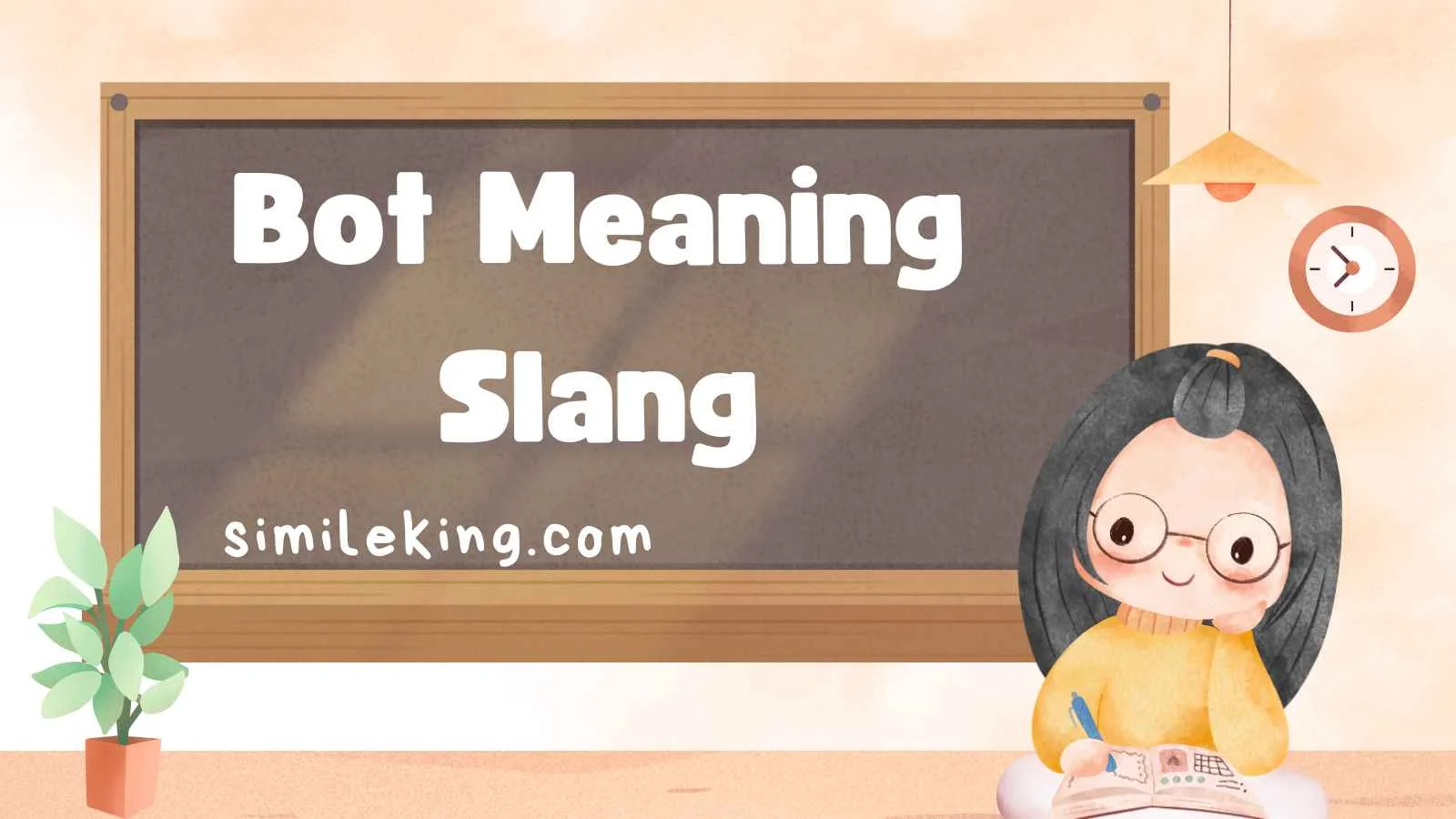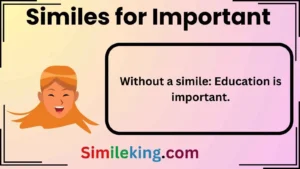In the ever-changing world of internet culture, slang evolves at lightning speed.
By 2025, one of the most common terms you’ll see across gaming chats, TikTok, Discord servers, Instagram DMs, and even professional tech spaces is “bot.”
But what does bot really mean in slang? How is it different from its technical definition?
Why has it become so popular in online conversations, and how can you use it effectively in different contexts without sounding awkward or outdated?
This guide dives deep into the slang meaning of “bot” in 2025, offering an advanced, well-structured explanation with examples and nuances that go beyond the surface.
Whether you’re a student trying to understand online culture, a parent keeping up with your kids’ slang, or a professional writing about digital communication, this article will give you everything you need.
What Does “Bot” Mean in Slang?
In slang, the word “bot” doesn’t just refer to automated software or AI robots—it’s shorthand for describing someone who acts mechanically, lacks originality, or follows instructions blindly.
When someone calls another person a “bot,” they’re usually saying:
- You’re acting predictable, unoriginal, or robotic.
- You’re lacking independent thought.
- You’re copying or repeating without understanding.
- In gaming: You’re playing so badly that you seem like a computer-controlled opponent.
Example:
- “Bro, you’re such a bot for missing that shot.”
- “Stop copying everything she says—you look like a bot.”
By 2025, the slang use of “bot” has expanded beyond gaming. It now shows up in:
- Social media (TikTok comments, Twitter replies) to roast someone.
- Casual texting among friends.
- Workplace chats (lightheartedly) when someone follows instructions too literally.
Origins of “Bot” in Slang
The slang “bot” originally comes from the gaming world, where NPCs (non-player characters) or AI opponents are sometimes called bots. Players noticed that poor human players often behaved just like these computer-controlled characters—predictable, clumsy, or unoriginal.
Over time, “bot” became an insult or playful jab:
- Gamers → “You play like a bot.”
- Online culture → “You act like a bot.”
- 2025 usage → “You think like a bot,” even in real-world social contexts.
This crossover from gaming into mainstream internet language mirrors the way words like noob, AFK, or GG became everyday slang.
Bot Meaning in 2025 Slang Culture
In 2025, “bot” carries three major slang interpretations depending on tone and context:
1. Insult or Roast
- Suggesting someone is unskilled, robotic, or clueless.
- Often used in gaming or sarcastic conversations.
Example:
“Man, you didn’t even react—total bot behavior.”
2. Playful Teasing
- Friends use “bot” jokingly without malice.
- Can mean someone’s acting goofy, awkward, or overly obedient.
Example:
“Haha, you’re such a bot for actually bringing homework on a Friday.”
3. Neutral Description
- In professional or tech circles, it may still mean automation.
- But even there, slang creeps in—sometimes colleagues call each other “bots” jokingly when following office routines.
Example:
“I feel like a bot—just following the same tasks every day.”
Why Is “Bot” Popular Slang in 2025?
The word “bot” resonates today because:
- AI is everywhere – With ChatGPTs, automation tools, and virtual assistants, people understand what a “bot” is more than ever.
- Simplicity – Just three letters, easy to type, and universally understood across platforms.
- Versatility – Works as a roast, a joke, or even self-deprecating humor.
- Meme culture – Countless TikTok trends and meme templates in 2024–2025 use “bot” jokes.
How to Use “Bot” Without Sounding Outdated
Language evolves fast, and slang loses its punch when overused. If you want to sound natural in 2025:
- Use it lightly: Don’t spam “bot” in every sentence; save it for playful jabs.
- Match the context: Gaming friends? Use it as a roast. Professional chat? Use it jokingly, not seriously.
- Avoid confusion: If someone’s not familiar with gaming or internet slang, clarify the meaning.
10 Examples of “Bot” in Slang (2025 Fresh Usage)
Here are 10 updated examples that capture different tones and contexts of how “bot” is actually used in 2025:
- Gaming roast:
“You walked straight into the trap—bot move!” - TikTok comment:
“This guy dances like a bot fr 💀” - Playful teasing:
“You ordered the same meal again? Bro’s a food bot.” - Workplace joke:
“I just followed the checklist step by step… guess I’m a corporate bot.” - Social media reply:
“L bot take. Nobody agrees with you.” - Friendship banter:
“She copied your exact outfit—you’ve got a style bot now.” - Self-deprecating humor:
“I wake up, scroll, eat, sleep… repeat. Full bot mode.” - Sarcastic clapback:
“Keep repeating the same thing, bot. Maybe you’ll convince yourself.” - Sports context:
“Missed an open goal? Absolute bot behavior.” - Tech humor:
“If my coffee machine breaks, I’ll turn into a caffeine bot at work.”
Polite, Professional, and Casual Alternatives to “Bot”
Sometimes, “bot” feels too harsh or informal. Here are alternatives:
Polite / Professional
- “Unoriginal”
- “Predictable”
- “Scripted”
- “Mechanical”
Casual / Playful
- “NPC” (non-player character)
- “Clone”
- “Copycat”
- “Basic”
Strong Roast
- “AI reject”
- “Glitch”
- “Lagging”
Example:
Instead of “You’re a bot,” in a professional setting, you might say:
- “That response felt a bit scripted.”
Nuances of Tone: When “Bot” Works Best
- Formal writing → Avoid slang; use “robotic,” “predictable,” or “unoriginal.”
- Professional chat → Use “bot” only in jest with colleagues who understand internet slang.
- Casual texting → Common and widely understood, safe to use with friends.
- Gaming / social media → The strongest context for slang “bot.”
The Future of “Bot” in Slang (2026 and Beyond)
Given how fast AI is integrating into daily life, “bot” will likely evolve even more:
- It may become a badge of honor (“I’m a bot at grinding work efficiently”).
- It may split into positive vs. negative slang, like how “sick” can mean both bad and good.
- It may even fade out if overused, replaced by newer AI-inspired slang.
For now, in 2025, “bot” is at its peak—still funny, still sharp, and still relevant.
Final Thoughts
The slang “bot” is more than just a word—it’s a cultural snapshot of how gaming, AI, and internet humor blend together in 2025. From playful teasing to sharp insults, “bot” adapts across contexts, showing the flexibility of modern digital slang.
If you want to stay fluent in online conversations, knowing when and how to use “bot” is essential. Just remember: like all slang, its power lies in timing, tone, and audience.





